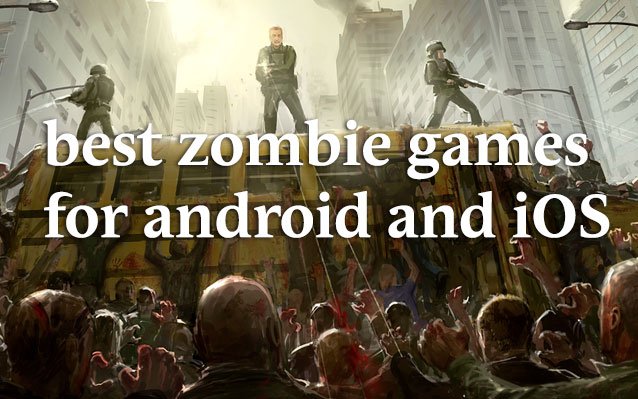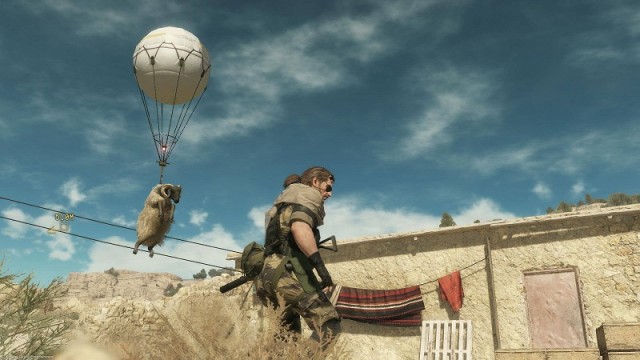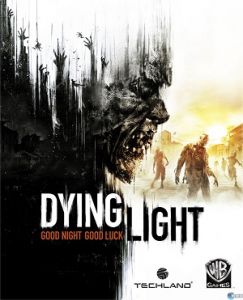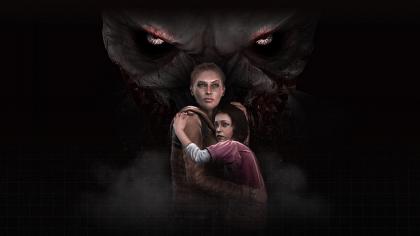

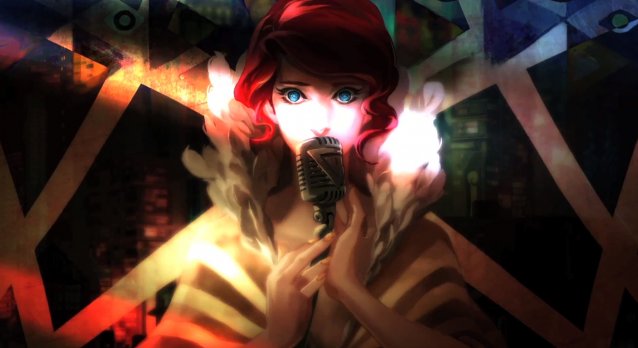
In 2011 Supergiant Games rocked the indie scene with their critically acclaimed action role-playing game, Bastion. As their first title, the game provided players with a touching experience through a vibrant environment and an amusing (and somewhat enigmatic) narrator who called out their every move. This year, Supergiant announced their next title, Transistor, a game we have been adamantly following since its first reveal at PAX East. Transistor, which appears to be a spiritual relative of Bastion, follows the story of a young woman named Red and the Transistor, a sword that aids her in combating the totalitarian entity known as the Process. Though we still know little about the narrative, the culmination of art direction, music, and gameplay provides a sense of where the game is going; compared to Bastion, Transistor seems to be taking on a slightly darker theme.
At this year’s PAX Prime Supergiant had a different build of Transistor on the show floor. While we were at their booth I had the pleasure of chatting with the game’s director, Greg Kasavin about the new build, the game’s overall aesthetic, and the possible narrative direction Transistor will ultimately be taking.
So can you tell us a little bit about the new build you guys have here at PAX Prime?
Greg: What we had at E3 was very similar to what we had at PAX East, which was six months ago. This build shows what we have been up to since then. It still takes place in the same part of the game, which is near the very beginning, but it provides us with a better sense of the structure, like the RPG elements as it were. We called it an action RPG but we didn’t show much of the RPG stuff the first time around. There are all sorts of little bits and pieces that we improved and modified because we are always tuning and tweaking to make ourselves better. Hopefully it reflects some of that.

It definitely does. It [Transistor] is similar to Bastion, but it is also extremely different. Bastion is very pastel-colored and bright, more fantasy-based. This [Transistor] is a little darker with shadows and darker colors. Was this an idea that resonated with the entire team from the beginning?
Greg: I think we naturally wanted to make a game in response to Bastion. In a lot of ways Bastion, for us, was an exploration of the action RPG genre. We really wanted to make an action RPG, but we knew we weren’t going to make a game like Diablo, because we would just make a worse version of Diablo, right? We needed to find our own angle on this so we ended up with the narration and the action-oriented combat. So with Transistor, we really had a lot of fun making the weird fantasy world of Bastion, and we wanted to see if we could do it again with more of a science fiction theme—starting with a sort of cyberpunk atheistic, as the genre trope, and then proceeding to twist that in hopefully interesting ways… also taking the gameplay in a more strategic direction, in which we found fertile ground for a deeper combat system which was something appealing to us.
One thing I love about the combat is that it varies so much depending on the player. If someone wants to make it a hack-and-slash they can, but there is also a heavy strategic element to it. Would it possible to go through the game without using the time-pause ability?
Greg: Yeah, that’s kind of the idea. Whether you’ll be able to avoid it entirely, I don’t know. The idea is that we want you to be compelled to use it on your own terms so we aren’t going to force it on you. We want the real-time combat to be fun and viable; having this really powerful ability opens up this opportunity for us in terms of designing combat and encounters with enemies, stuff like that. To make them really intense because you always have this option to say ‘No, no, no, wait. Time out. Now I’m going to turn the tables on these guys. I’m going to take these guys out, do that..’ and we find out that players use it in very different ways—that’s when we felt that we were really onto something. Not everyone was just using it every single time, because we didn’t want to make just a straight-up turn based game, because of the things we wanted to do with the narrative and our desire to make an immediate-feeling game. We wanted to capture some of the sensation of turn-based games and the drama of contemplating your next move and the anticipation of pressing the go-button and seeing whether the plan is going to happen or whether it is going to screw up. Those are fun moments for us.

In terms of the game’s narrative….with the demo we see that Red is this character who has essentially lost her voice, and yet she finds the inanimate object, the Transistor, that has a voice. How does this contrast play into the narrative goal of the game?
Greg: It’s actually an idea we came back around to, but one of the first ideas we had on the project was having the story around this pair of characters. We found it to have a naturally rich potential—with a silent protagonist, where the silence of the protagonist is actually part of the story. Having just done a game in a more traditional way with Bastion, where he doesn’t talk just because of the story structure, whereas here [in Transistor] it’s part of the whole premise. And in addition to that the symbiotic relationship with someone who is forced to only take action and can no longer have a voice versus someone who is only a voice and what that kind of character can do in that situation. We really just wanted to develop the relationship between them throughout the course of the story. I’m beating around the bush a little bit. I don’t want to say too much about it because it’s very central to the story.
*laughs* I completely understand. I feel like everything in the game, from the art and music to the gameplay and story, come together to paint this massive narrative. Was this sort of culmination of design a goal from the beginning?
Absolutely. We try to make games that feel complete, where everything fits together, maybe in kind of a weird way, but it still fits. And in this case we want to create this idea that Red was this kind of living legend of singer in this world, and now her voice has been taken from her. So what happens to a person whose whole life was her voice? Now that it’s gone, what is she going to do? We wanted to create that kind of character and put her in this situation and see where we would go with that.
In the end, what do you want players to take away from playing Transistor?
I mean, I would be very happy if it were received similar to the way Bastion was received. We have been just overwhelmed with the response to Bastion and it’s the reason we can be here again making a game on our own terms. With Bastion we wanted to make a game that would leave a lasting and positive impression on people, and be more than just fun to play, but leave people with something. We like games that do that, and we want to see if we can do it again. Hopefully we can surprise people along the way once more.
And then the burning question everyone has been asking you…. When and on what can we expect to see Transistor?
Transistor is coming to PS4 and PC early next year.
